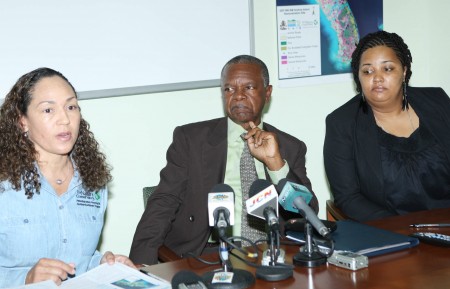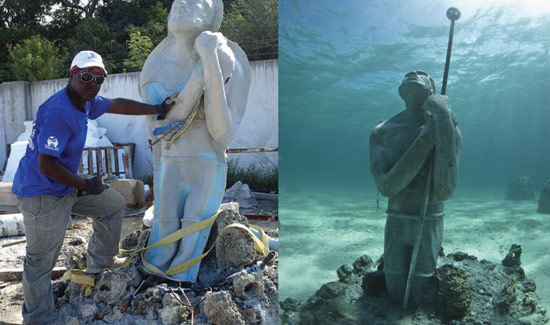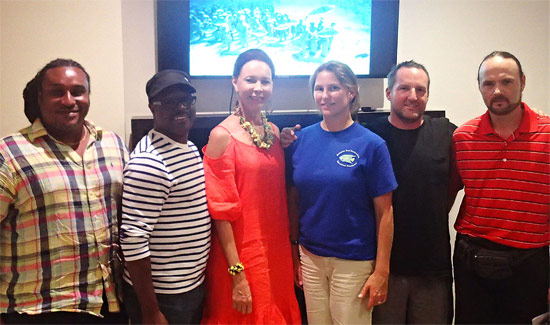
NASSAU, The Bahamas — The Bahamas Government and The Nature Conservancy (TNC) announced that a research project to find ways of protecting groundwater resources through the development of a Land and Sea Use Plan known as the Integrated Watershed and Coastal Areas Management (IWCAM) Project was completed on September 30, 2010.
TNC is one of the leading conservation organisations working around the world to protect ecologically important lands and waters for nature and people.
Eleanor Phillips, director, Nature Conservancy, Northern Caribbean said the government signed the contract with The Bahamas branch of TNC on March 23, 2009, to carry out the 18-month project in Andros, which was funded by the Global Environment Fund (GEF).
The developed countries of the world through taxpayer dollars fund GEF. It focuses on specific areas of need, such as biodiversity, open waters, and climate change for which the larger developing countries of the world are allocated an established level of funding.
Smaller countries, like The Bahamas, receive funding as part of a group allocation.
The Bahamas was the recipient of two pilot projects for demonstrating sites (Exuma and Andros) for the IWCAM Project, and the country received $405,000 to undertake the ventures, Mrs Phillips said.
Philip Weech, director, BEST Commission, Ministry of the Environment said there were two reasons why The Bahamas was chosen to undertake the IWCAM project.
The Caribbean is made up of islands that are mostly elevated, while The Bahamas is made up of low-lying islands, he explained.
Exuma was chosen as the site exploring wastewater treatment (coastal pollution), while in Andros the focus was groundwater protection.
“Andros is very important because the Water & Sewerage Corporation is barging three to 3.4 million gallons of water per day from North Andros to Nassau,” Mr Weech said.
“So it was a natural fit for us to take a look at what are the threats to water resources in a low lying coastal setting as opposed to the problems they have in other countries that have rivers and large expansions of water coming down hills.”
The Bahamas has fresh water lenses that are at the surface, so the problems the country faces are “radically” different from those in other locations, he said.
Once the project is over, it has to be able to be replicated in other countries, and the lessons learned here used to inform decision making elsewhere, Mr Weech noted.
Minister of the Environment the Hon Earl Deveaux said the work that was done puts a value on the natural resource systems of Andros, and highlights the vital importance of water, forests, crabs, the reef systems, and other natural resources that contribute directly to the income and welfare of people.
“According to the research, just under 1,700 people enjoy full-time employment in activities directly related to nature, and close to 8,000 part-time jobs are created in Andros from the natural resource environment,” he said.
It is estimated that close to $7 million a year is earned by the nearly 1,700 people and that represents just half of the national average income made from fishing, crabbing and related activities, Mr Deveaux explained.
The project also forecasts that in the next 20 years, the natural resources will be worth billions of dollars.
“Clearly providing for a permanent funding mechanism to harness these resources, manage them and to make important critical decisions as to how we determine where we put development, what we put aside and how we manage the watersheds of our islands is going to be important,” the Minister said.
This can only be done by undertaking detailed and meticulous research to make the proper decisions to accommodate development to secure the livelihoods of people while protecting the environment.
By Llonella Gilbert
Bahamas Information Services



